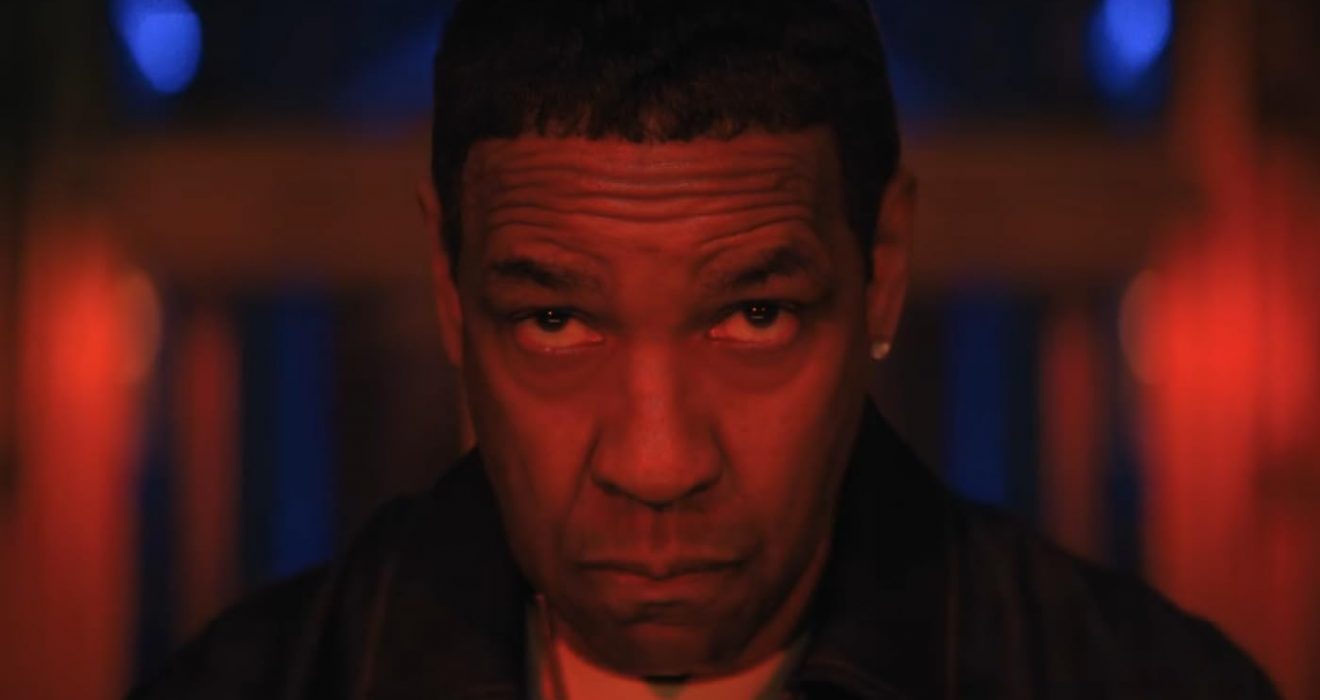“Highest 2 Lowest” Review
Director: Spike Lee Screenwriter: Alan Fox Cast: Denzel Washington, Jeffrey Wright, Ilfenesh Hadera, ASAP Rocky Distributor: A24 Running Time: 133 min. MPAA: R
Spike Lee clearly has a love for classic filmmakers like Akira Kurosawa that he wouldn’t turn in a routine and rote remake of his most revered thriller, High & Low. He also doesn’t waste a chance to use a powerhouse actor like Denzel Washington in something juicier beyond the standard class criticism of the original film. With such prowess, Lee’s Highest 2 Lowest is likely the best case scenario for adapting the Kurosawa classic by making the film more uniquely his own, alive with music and New York energy. He doesn’t always land a hit, but it’s fun to watch these wild swings with the material.
The story has relatively the same premises involving kidnapping, money, trains, and confrontations with the class divide. Washington plays music mogul David King, who maintains a cushy family life with his lovely wife Pam (Ilfenesh Hadera) but struggles to control his record company. Even when making risky deals to purchase shares and take back his business, Washington exudes a natural sense of control when facing make-or-break moments. One of the early scenes features David bargaining for an opportunity to buy more shares if he can get the money, and his case is made so bravely that he lets several pregnant pauses linger between the decision, with an infectious attitude and smile that are impossible to ignore.
David’s negotiation skills will be put to the ultimate test when his teenage son, Trey (Aubrey Joseph), and the son of David’s close associate, Paul (Jeffrey Wright), are kidnapped. The crime, committed by an aspiring rap artist, takes a different turn when Trey is returned, and David debates paying the ransom for Paul’s son, a concern that generates debate the moment David doesn’t immediately agree to the ransom. The monetary factor reveals the ugliness of David’s business mindset, where his favoring of a record deal takes precedence over another life. This leads to some cold moments of David talking down to his son, which plays in a lower key than Washington’s thunderous performance in Fences. As the film progresses, it becomes less of a highlight on greed and more of a redemption for his character that drives towards a cliff and steers away a few feet from the abyss.
Spike Lee adds a much different flavor to this thriller by embracing a musical atmosphere and charismatic Washington, making it feel like the type of thriller made in the 1990s. Some of it is so ambitious that I admired the attempt alone, as when the big handoff of the ransom amid moving trains is set against the background of a Puerto Rican festival with Latin party music blazing as Eddie Palmieri bangs some tunes out on a piano for a crowd. In some of the shots, Palmieri is mashing his elbows on the keys, and it doesn’t seem to break the beat or turn off the audience, highlighting an experimental nature throughout the film. There’s this gung-ho quality to how Lee tries to find the right moments that capture something profoundly present instead of progressively poignant. While this aspect does make some of the thematic elements lost in the theatrics, it’s hard to deny Lee’s favoring of a musical epilogue featuring Aiyana-Lee closing the film on a literal high note.
Those familiar with the Kurosawa classic may question how Lee handles that unforgettable scene of the father confronting the criminal behind glass. I must admit that I was intrigued by how Lee favored an entirely different tone. While the criminal of High & Low came to the frightening realization of his own actions before the cage closed in around him, the culprit of Highest 2 Lowest endures the shame of how every grab for attention doesn’t warrant a business deal. Though this reframing removes an existential dread from crimes of desperation, it works well for David, essentially rejecting the devil’s offering him another contract. That might not suffice for audiences hoping to see more of a class satire, but the favoring of character growth and money does paint the picture with more of its own vibe instead of remaining faithful to Kurosawa on a verbatim level.
Highest 2 Lowest has its highs and lows, but it mostly succeeds as something more than a mere Kurosawa remake. It tends to drag here and there and not all the musical fusions meld all that well into this thriller, creating an off-beat atmosphere that sometimes trips into off amid its mashing of hip-hop, jazz, and Latin-American beats occupying the same scenes of chases and gunfights. While this isn’t Spike Lee at his best, this is definitely the director experimenting and playing around with material rather than playing it safe or reprise the same notes. That spirit of retooling makes this more of a rousing tale that lets Denzel have as much fun with this thriller character as Lee does trying to frame it with different techniques, musical choices that are anything but predictable (I doubt anybody would believe the song choice for the opening), and a version of New York City that kicks with a vibrant pulse. Lee and Washington haven’t lost their touch in a film that is so damn good when finding those sweet highs.

